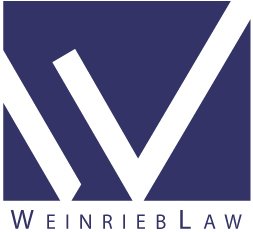Understanding Child Support in New York State: Calculation and Enforcement
Child support is a crucial aspect of family law, ensuring that children receive the financial support they need after their parents separate or divorce. In New York State, the process of calculating and enforcing child support follows specific guidelines to maintain fairness and consistency. Weinrieb Law, a trusted family law firm in Williamsville, NY, is here to provide a detailed overview of how child support is determined and enforced in New York State.
How Child Support is Calculated in New York State
The calculation of child support in New York State is governed by the Child Support Standards Act (CSSA). The CSSA outlines a formula that considers both parents' incomes and other factors to determine a fair amount of support for the child. Here’s a step-by-step breakdown:
Determine Gross Income: The first step is to calculate each parent's gross income. This includes wages, self-employment income, investment income, and other sources. Certain deductions, such as social security and Medicare taxes, are then subtracted to arrive at the adjusted gross income.
Combine Parental Income: Both parents' adjusted gross incomes are combined to determine the total parental income.
Apply the Child Support Percentage: The CSSA sets forth a percentage of the combined parental income based on the number of children:
17% for one child
25% for two children
29% for three children
31% for four children
At least 35% for five or more children
Proportional Distribution: Each parent’s share of the combined income is calculated, and the non-custodial parent is required to pay their proportionate share of the total child support obligation.
Additional Expenses: The court may also consider additional expenses such as healthcare, childcare, and educational costs. These expenses are typically divided between the parents based on their income proportions.
Enforcement of Child Support Orders in New York State
Once a child support order is established, ensuring compliance is crucial. New York State employs several mechanisms to enforce child support orders:
Income Withholding: The most common enforcement method is income withholding. The non-custodial parent's employer automatically deducts the child support payments from their paycheck and forwards them to the Child Support Enforcement Unit (CSEU).
Tax Refund Interception: If a parent falls behind on child support payments, their state or federal tax refunds may be intercepted and applied to the owed child support.
License Suspension: New York State can suspend various licenses, including driver’s, professional, and recreational licenses, for non-payment of child support.
Property Liens: Liens can be placed on the delinquent parent’s property, including real estate and personal property, to secure payment of overdue child support.
Credit Bureau Reporting: Late payments are reported to credit bureaus, which can negatively impact the non-custodial parent's credit score.
Contempt of Court: Persistent failure to pay child support can lead to a contempt of court finding, resulting in fines or even jail time.
Conclusion
Understanding how child support is calculated and enforced in New York State is essential for both custodial and non-custodial parents. At Weinrieb Law, we are dedicated to helping families navigate these complex processes to ensure the best outcomes for their children. If you need assistance with child support issues or any other family law matters, contact our experienced team in Williamsville, NY, for a consultation.
For expert legal advice and representation in family law matters, contact Weinrieb Law today.
